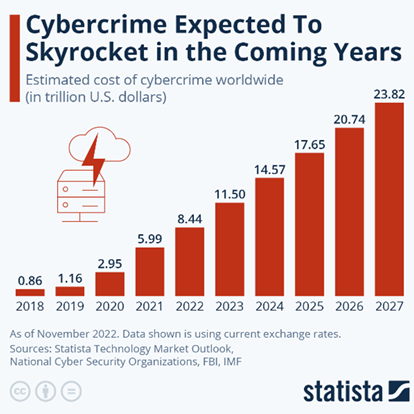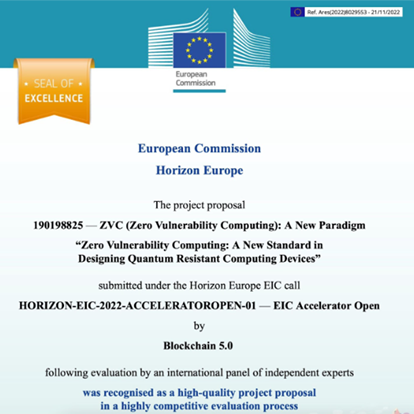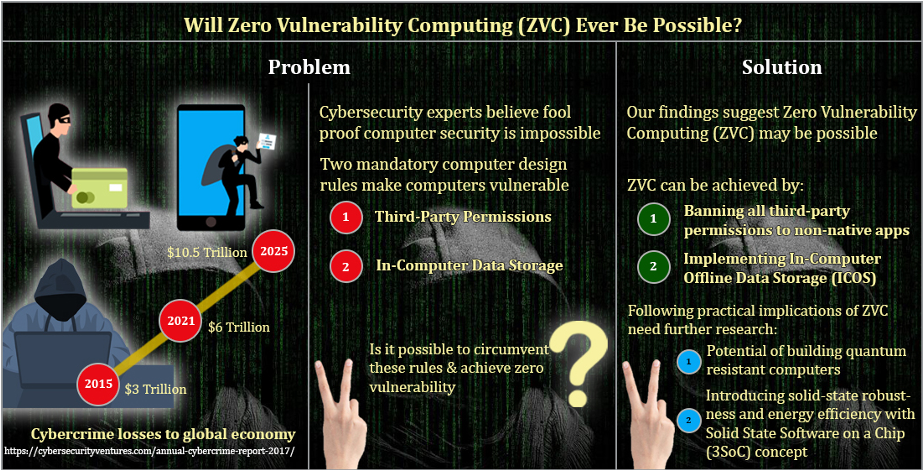Cybercrime costs the global economy over €6 Trn & projected to a whooping 22 Trn by 2027. This is essentially because there’s no computer that’s not vulnerable & fool-proof cybersecurity of personal data in a connected computer is considered impossible.
The advent of quantum computers (QC) will make the cybersecurity situation worse. Countries are racing to achieve quantum supremacy as it will drastically reduce the computing time from years to minutes. The power of QC will be a boon for data-intensive industries, but will render our current crypto algorithms vulnerable to quantum attacks, breaking nearly all modern public-key cryptographic systems. Before QC with sufficient qubits arrive, we must be ready with quantum-safe algorithms & deployment strategies to protect our ICT infrastructures.
Solid State Software on a Chip (3SoC): A Novel Approach for Quantum Safe Computing
Acronym: 3SoC
TOPIC ID: HORIZON-EIC-2023-PATHFINDER OPEN-01-01
| # | Participant organization (acronym) | Type | Country | Expertise |
|---|---|---|---|---|
| P01 | UC: University of Calabria | UNI | Italy | Software design, cybersecurity, n/w engineering |
| P02 | BC5: Blockchain 5.0 Ltd | SME | Estonia | Cybersecurity, Web 3.0, software design, IPR |
| P03 | EUT: EURECAT | RO | Spain | Cybersecurity, IoT, hardware engineering, prototyping |
| P04 | UTH: University of Thessaly | UNI | Greece | Pervasive computing, IoT, network engineering, AI |
| P05 | F6S: F6S Ltd, Ireland | SME | Ireland | Dissemination & exploitation |
| P06 | AFL: Autonio Foundation Ltd | NPO | UK | Blockchain, crypto trading, crypto exchange |
| P07 | SSL: SmartSol SIA | SME | Latvia | ICT, AI, 5G data networks, Big Data, Autonomous driving, Digital healthcare |
| P08 | UGLA: University of Glasgow | UNI | UK | Distributed Intelligence, Quantum Computing |
| P09 | LPNU: Lviv Polytechnic National University | UNI | Ukraine | Software design, hardware engineering and high-level synthesis, reconfigurable computing, cybersecurity, Quantum Computing |
* UNI = University; RES = Research Organization; SME = Small to Midsize Enterprise; NPO = Non-Profit Organization
ABSTRACT


Post-quantum cryptography (PQC) is being aggressively pursued worldwide as a defense from potential quantum threats.NIST (National Institute of Standards and Technology), in a rigorous 5-year process tested 82 PQC schemes, 80 of which failed, placing NIST’s quantum-safe encryption standardization process in jeopardy.
There’s an urgent need to explore alternate strategies.Although computer security heavily relies on cryptography, recent evidence indicates that it can indeed transcend beyond encryption using Zero Vulnerability Computing (ZVC) technology.
ZVC is an encryption-agnostic approach that can potentially render computers quantum resistant by banning all 3rd party permissions, a root cause of most vulnerabilities. ZVC eliminates the complexities of the multi-layered legacy architecture & builds a minimalist, compact Solid-State Software on a Chip (3SoC) device that’s robust, energy efficient & with zero attack surface, rendering it resistant to malware, as well as future quantum threats. 3SoC consortium tests/validates 3SoC in 3 vulnerable use cases: Quantum-as-a-Service (QaaS), Quantum Ledger Technology (QLT) to secure blockchain networks & cryptocurrency exchanges.
